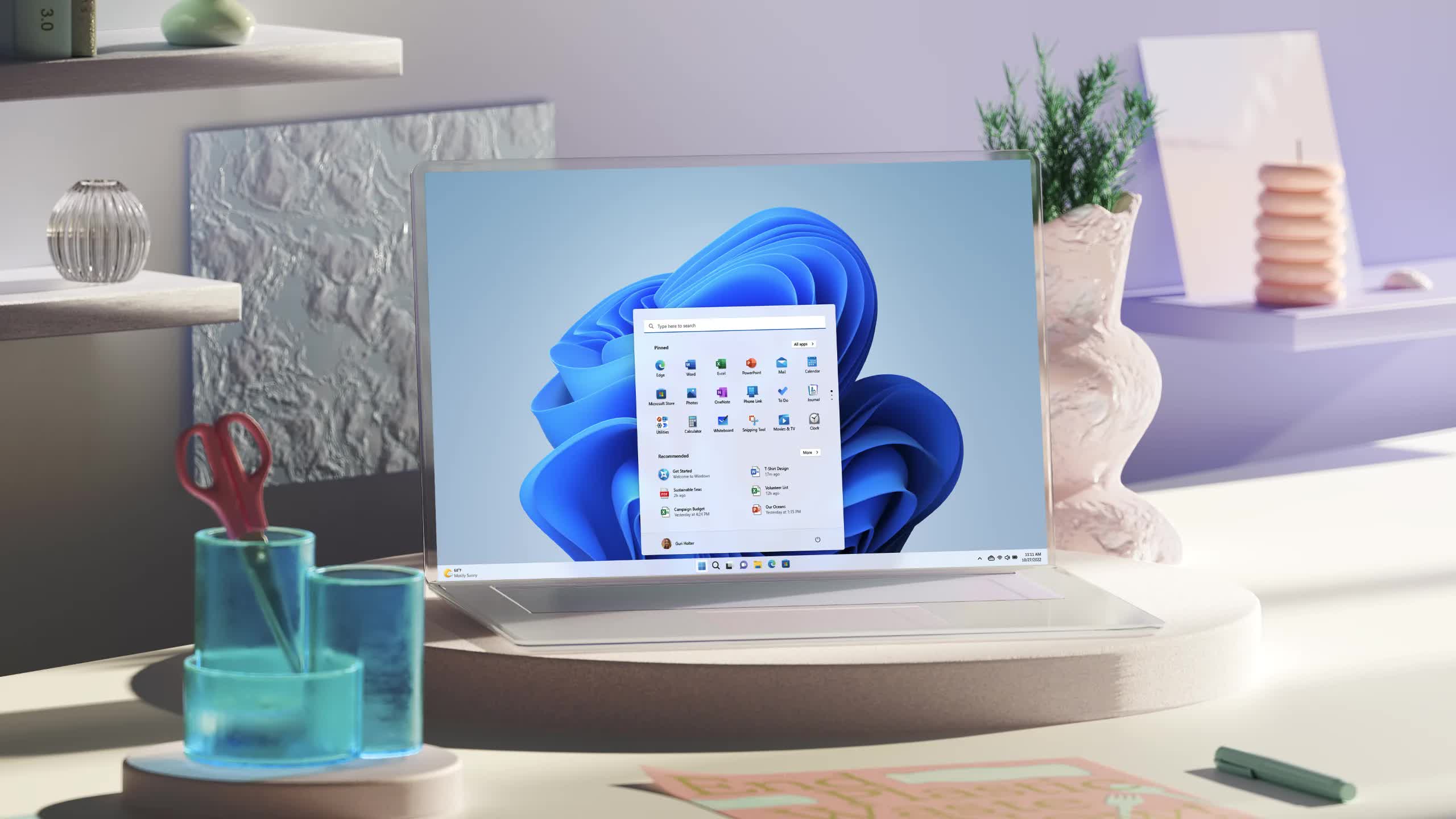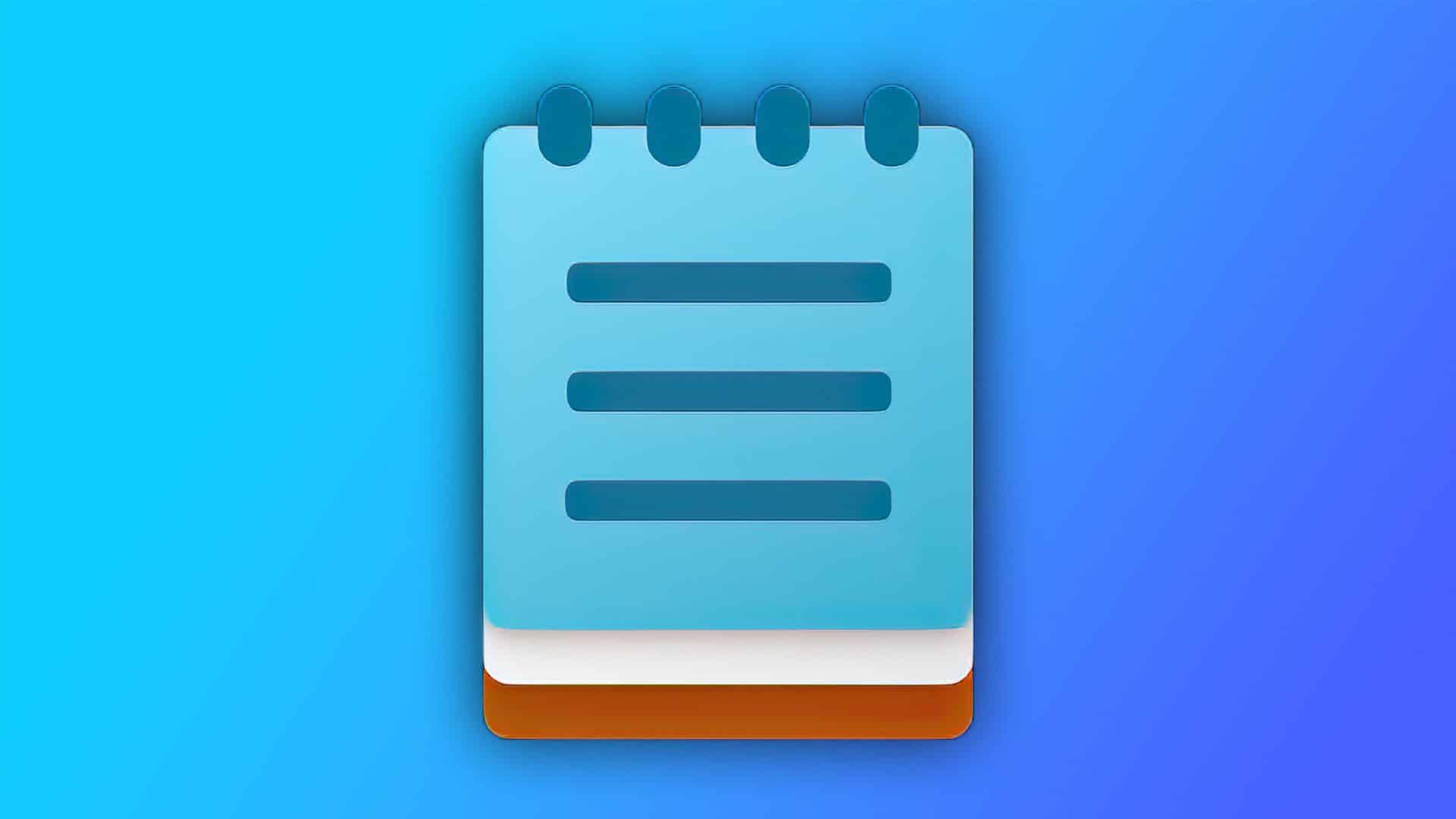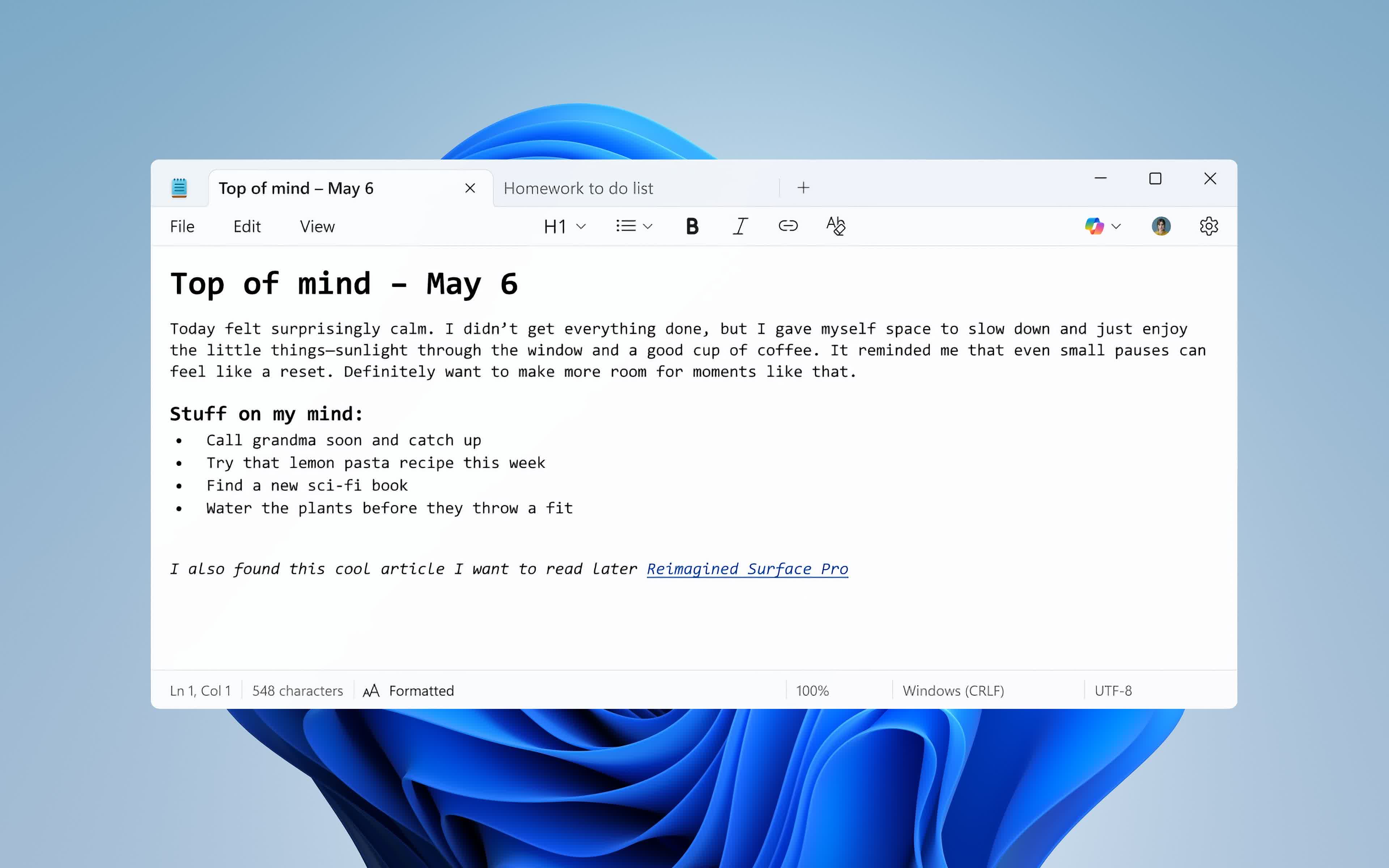Recap: Since Windows 11 launched in 2021, Notepad has received some of the most significant updates in its 42-year history. While the plaintext editor has traditionally served as a lightweight alternative to Microsoft Word for coding and simple note-taking, recent additions are making it increasingly resemble a traditional word processor.
Windows Insiders can now access a formatting toolbar in Notepad to apply text styling. This feature is currently available in the Canary and Dev channels, and past update patterns suggest it will eventually roll out to all Windows 11 users.
Insiders can apply bold, italic, and Markdown-style formatting to distinguish regular text from headers. Notepad also now supports hyperlinks and bullet-point lists.
A toggle button in the status bar at the bottom of the window allows users to switch between formatted Markdown and raw Markdown syntax. Additionally, users who prefer traditional plaintext editing can completely disable formatting in the settings menu.

Formatting is only the latest of a series of updates Notepad has received over the last few years. The app, one of Microsoft's oldest, underwent relatively little change since the launch of Windows 95 three decades ago, but received a new user interface and support for dark mode in 2021. Browser-style tabs were introduced in 2022, followed by spellcheck and autocorrect in 2023. The addition of generative AI-based text editing late last year was likely the most significant and controversial feature to date.
Why Microsoft is now adding word processing features to its plaintext editor remains unclear. However, examining similar apps may offer insight into the company's strategy.
Alternative editors like Sublime Text, Visual Studio Code, and Notepad++ have long offered a richer feature set than Notepad, so the recent updates might be a response to the competition. However, the recent deprecation of WordPad could be another factor.

Introduced alongside Windows 95, WordPad offered a built-in rich text editor for users unwilling to pay for a full Microsoft Office license. It filled a middle ground between Word and Notepad. Microsoft may now be shifting some of WordPad's functionality to Notepad to fill that gap.
Still, Windows users have no shortage of free text editing options today. Cloud-based solutions like Google Docs and iCloud Pages enable syncing across multiple devices without requiring a subscription, unlike Microsoft 365. Meanwhile, FreeOffice and LibreOffice provide fully offline functionality and closely resemble Microsoft Office.
Microsoft also continues to offer a non-subscription version of Office, which is frequently discounted. The latest limited-time deal offers Microsoft Office Pro 2021 for just $49, a 70% discount.
Notepad gets bold, italics, and Markdown support in latest update
